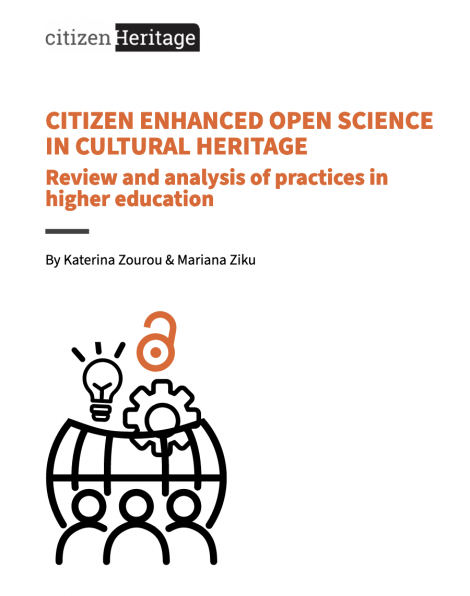|
Digital meets Culture https://www.digitalmeetsculture.net/article/citizenheritage-study/ Export date: Sun Mar 1 16:31:16 2026 / +0000 GMT |
CitizenHeritage Study about citizen enhanced open science in cultural heritage
In this light, CitizenHeritage produced a substantial, evidence-based Study for a review of practices of Higher Education Institutions' engagement in citizen enhanced open science in the area of cultural heritage. It defined best practices regarding HEI organisation, open practice, sustainability, and civic engagement. It also identified untapped potential where HEIs can play a more active role thus to connect civic engagement with the open science virtuous circle, in the Cultural Heritage sector. Until 15 February 2021 a Survey was also open for collecting inputs about projects including Citizen Science in cultural heritage. The results of the Survey and of the desktop research that converged in the Study were published in a open access report that summarizes the findings. The report was published in July 2022, on Zenodo. Download the Study as PDF Zourou, Katerina, & Ziku, Mariana. (2022). Citizen Enhanced Open Science in Cultural Heritage - Review and analysis of practices in Higher Education. Executive Summary: This publication addresses a largely underexplored topic: open and citizen science dimensions in the field of cultural heritage, by emphasising the role higher education institutions can play. Some of the questions this study tackles are: Τhe concept of “citizen enhanced open science” will serve to broaden the scope of open science by including public participation in the shaping of scientific research. For the analysis, we identified - with the support of the project partners - 110 international cases, refined to 25 European based practices. The study maps the infrastructures, digital tools and typologies which enable the active involvement of citizens in scientific knowledge co-creation. The applied typology is informed by several European policy guidelines and initiatives that discuss the connection between open science, higher education and civic engagement. We opted for a data-driven approach which elaborated on the concept of “citizen enhanced open science” analysing, among others, such dimensions as open data, FAIR data, type of participation and form of civic engagement; presenting the results through data visualisations. Learn more about the CitizenHeritage project: https://www.citizenheritage.eu/ |
 CitizenHeritage, funded within the Erasmus+ programme of the European Commission, is a project about the involvement of citizens in cultural heritage as a booster for sustainable university research and higher education.
CitizenHeritage, funded within the Erasmus+ programme of the European Commission, is a project about the involvement of citizens in cultural heritage as a booster for sustainable university research and higher education.